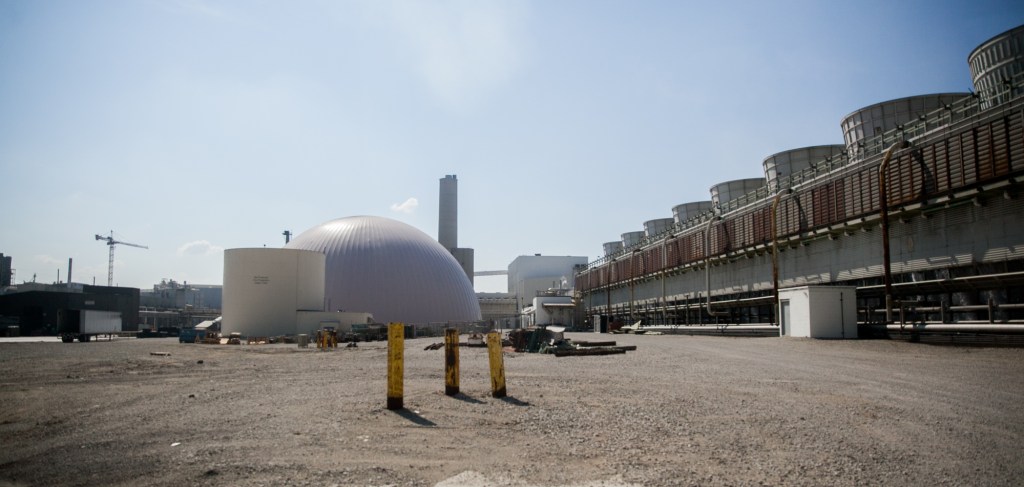Agribusiness giant Archer Daniels Midland’s massive underground CO2 storage facility — a showcase for a growing but controversial industry — has experienced a leak that is drawing scrutiny by the U.S. Environmental Protection Agency.
In an Aug. 14 notice of violation, the EPA said that “the information currently available” suggests the ADM facility in Decatur violated the Safe Drinking Water Act as well as carbon storage regulations and an EPA permit.
The EPA alleges that CO2, which ADM injects deep underground to prevent global warming, was allowed to move into “unauthorized zones,” that ADM failed to monitor a CO2 well in the required manner, and that ADM failed to follow the proper emergency response and remediation plan.
The EPA said in a written statement that the agency is working with ADM to gather more information and “ensure that issues identified in the notice are addressed as quickly as possible.”
“At present, EPA doesn’t have any information to suggest there is a threat to drinking water in nearby communities,” the agency said.
In a written statement, Archer Daniels Midland said that the company detected some corrosion in a section of a deep monitoring well; the corrosion was located about 5,000 feet underground and lower.
Corrosion in the well created holes large enough for fluid to pass through, according to an EPA inspection report quoted in a document ADM shared with the Tribune.
“(The affected) monitoring well was plugged, is not in use, and none of the other wells were impacted,” the ADM statement said. “At no time was there any impact to the surface or groundwater sources or any threat to public health. We reported this development to (the) U.S. EPA and are committed to working closely with (the) U.S. EPA on this issue.”
The estimated amount of fluid involved in the leak was less than 8,000 metric tons, which equates to less than three days of carbon injections, according to ADM spokesperson Jackie Anderson.
Carbon dioxide pipelines and storage are part of a burgeoning climate industry strongly encouraged under federal climate law.
But Midwestern landowners and environmentalists have fought a wave of new proposals for carbon storage and transport in the region, saying that the health risks are too high, and that carbon dioxide has never before been stored at the massive scale now envisioned.
One of their main concerns is drinking water contamination.
“I think the leak really makes our case: This is not a solution for the future,” said Pam Richart, co-director of the Champaign-based environmental group Eco-Justice Collaborative.
President Joe Biden’s Inflation Reduction Act offers billions of dollars in tax credits for CO2 pipelines and storage complexes. The storage areas are located deep underground in naturally occurring rock formations.
The goal is to capture and store carbon dioxide, preventing it from further warming the planet at a time of growing concern about climate change.
Among the concerns opponents have raised: In rare instances, CO2 pipelines can rupture. That’s what happened in 2020 in Satartia, Mississippi. Carbon dioxide — a colorless, odorless and potentially suffocating gas — didn’t kill anyone, but there were reports of shortness of breath, confusion and loss of consciousness, and 45 people sought medical care at local hospitals.
In central Illinois, protection of the Mahomet Aquifer, which provides drinking water for hundreds of thousands of people, has become a rallying point for opponents.
A portion of the aquifer is considered a “sole source” aquifer by the EPA, meaning that contamination would create a significant hazard to public health, and there are no feasible alternative sources of drinking water.
“It is a major source of water here in the central part of the state — it is our source of water,” said Richart.
The ADM facility in Decatur, the first in the country to operate Class VI carbon storage wells permitted by the EPA, has long been Exhibit A for those who say CO2 storage can be done safely.
The facility has been the focus of multiple studies, many with references to its success in large-scale carbon storage.
To date, projects at ADM’s Decatur site have stored more than 4.5 million metric tons of carbon dioxide.
nschoenberg@chicagotribune.com
Originally Published:
